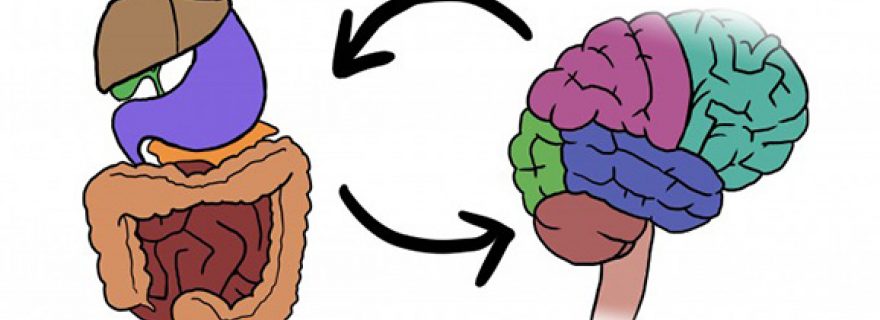Gut feelings
The gut is rather a neglected organ in the human body and is mostly known for its role in digestion. However, scientists are increasingly becoming aware of the important influence of the gut system on emotions and related brain systems.
The gut system is closely linked to emotions
‘That takes a lot of guts!’ ‘My gut feeling says not to trust her.’ ‘I really yelled my guts out.’ A few examples of expressions showing that among the general population the gut system is closely linked to emotions.
Bacteria residing in the gut are in fact ‘good’ bacteria
The gut contains trillions of bacteria, known as microbes or microscopic organisms. Bacteria usually have a bad name, as they can cause food poisoning, meningitis and several other infections. However, the bacteria residing in the gut are in fact ‘good’ bacteria: they help to digest food, produce vitamins (e.g., B and K), and train the immune system to recognize harmful bacteria.
In the womb, a fetus lives in a sterile environment and is not exposed to bacteria. Then, at birth the baby passes through the birth canal and the colonization of bacteria starts through contact with the mother. The composition of the so-called ‘microbiota’ –which is the collection of bacteria at a certain site in the body such as the gut or skin– varies considerably from person to person and is influenced by genetic factors and age, as well as by environmental factors including diet and maternal stress.
‘Gut-brain axis’
The gut communicates directly with the brain in a reciprocal way; this is known as the ‘gut-brain axis’. This bidirectional communication is established through –but not limited to– the central nervous systems, the enteric nervous system (ENS; a complex and extensive network of neurons within the gut itself, referred to as our ‘second brain’), and the gut microbiota.
Probiotic mixture can substantially alter brain activity
Neuroscientists have become increasingly aware of the important influence of the gut microbiota on emotions and related brain systems. Most of these studies highlight a role for the microbiota in modulating stress-related behaviors that are relevant to psychiatric disorders such as anxiety and depression. These studies are typically –but not exclusively– based on animals exposed to probiotics or to antibiotics. Probiotics are live organisms that, when consumed in adequate quantities, effect a health benefit. Promising findings in animals include antidepressant and anxiety-reducing effects of probiotics. Moreover, a recent study in humans has demonstrated that a probiotic mixture can substantially alter brain activity in the mid and posterior insula during the processing of emotions. Importantly, the insula plays a key role in anxiety disorders, but also in the emotion disgust, which could –speculatively– be linked with food poisoning.
Indeed, in humans there is a close link between stress, anxiety, and gut disorders such as irritable bowel syndrome, which further emphasizes the importance of the gut-brain axis.
Our ‘second brain’ should not be ignored
In conclusion, gut-brain interactions are an exciting new field of research. Not only my gut feeling but also scientific evidence tells me that our ‘second brain’ should not be ignored when we are studying emotions and emotional disorders.





